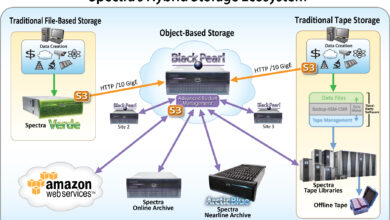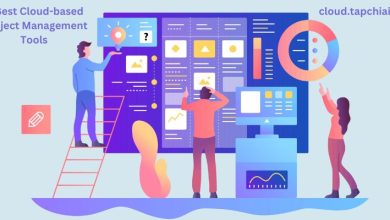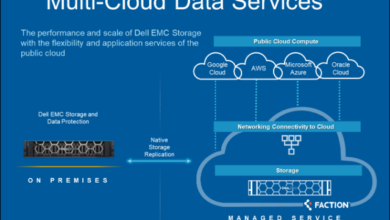Difference Between Public Cloud Vs Private Cloud And Hybrid Cloud

Cloud computing is a classified term that spans a wide range of different architectural models. And of course, with the complexity of cloud computing technology, all architectural models are usually classified into 3 main groups: public cloud, private cloud, and hybrid cloud. The article Difference Between Public Cloud Vs Private Cloud And Hybrid Cloud will help you understand the difference between these concepts.
Contents
Public Cloud
Refers to the cloud computing model with IT services delivered over the internet. Services may be free, paid, or offered for a fee based on the resource used.
Computing functions can range from common services such as email, apps, and storage, to enterprise operating system platforms or infrastructure used for software development and testing.
Cloud service providers are responsible for developing, managing, and maintaining a pool of computing resources shared among service tenants across the network.
Public cloud features include scalability and scalability for IT services to be deployed at the lowest cost.
As the most popular model of cloud computing services, the public cloud offers a wide selection of solutions and computing resources to address the growing needs of organizations of all sizes.
This is the first information on the Difference Between Public Cloud Vs Private Cloud And Hybrid Cloud.
Advantages of Public Cloud solutions for businesses
– No investment required to deploy and maintain IT infrastructure
– High flexibility and scalability to meet unpredictable workload demands
Reduce complexity and require IT expertise as the cloud provider is responsible for managing the infrastructure.
– Predictable computing needs. Such as communication services for a specific number of users
– Applications and services required for IT service implementation and business operations
– Requires additional resources to address different needs
– Software development and testing environment
Limitations of Public Cloud
– The total cost of ownership (CTO) can increase exponentially when used at scale, especially for small and medium businesses.
– Not the most viable solution when IT workloads are critical, sensitive, and need high security.
– Low infrastructure visibility and control may not be enough to meet stringent security regulatory compliance.
Private Cloud
Private Cloud is the field that refers to a cloud solution dedicated to an organization. Data center resources can be on-premises or operated by an external 3rd party.
Compute resources are segregated and distributed through a secure private network and are not shared with other customers. The private Cloud is customizable to meet your organization’s business and security needs.
This is the next concept in the Difference Between Public Cloud Vs Private Cloud And Hybrid Cloud.
With better visibility and control of the infrastructure, organizations can operate and comply with sensitive IT workloads.
However, it does not compromise the security and performance that were previously achievable only with dedicated data centers.
Benefits of Private Cloud for Business Organization
– Dedicated and secure environments that cannot be accessed by another organization.
– Comply with strict regulations as the organization can run protocols, configurations, and metrics to customize security based on unique workload requirements.
Highly scalable and efficient to meet unpredictable business demands, without compromising on security and performance.
Flexibility to transform infrastructure based on an organization’s ever-changing IT and business needs.
– Highly regulated industry and government agencies
Technology companies that require strong security and control over IT workloads and underlying infrastructure
– Large enterprises require advanced data center technologies to operate efficiently and cost-effectively
Organizations can afford to invest in high-performance and available technologies.
Limitations of Private Cloud
– Expensive solution with a relatively high total cost of ownership (CTO) compared to Public Cloud in the short-term use case.
– Mobile users may experience limited access to the private cloud considering high-security measures.
– Infrastructure may not be highly scalable enough to meet unpredictable demand if the cloud data center is limited to compute resources.
Hybrid Cloud
Refers to the infrastructure mixed between Public Cloud and Private Cloud. Resources are typically located within an integrated infrastructure.
Data and application workloads can share resources between public and private clouds based on the technical and business policies of the organization around security, performance, scalability, cost, and efficiency, among other aspects.
For example, organizations can use private cloud environments for IT-related workloads. And supplement infrastructure with public cloud resources to accommodate spikes in network traffic.
The environment itself is seamlessly integrated to ensure optimized performance and scalability for changing business needs.
This is the next concept in the Difference Between Public Cloud Vs Private Cloud And Hybrid Cloud.
The benefits of Hybrid cloud to business organization
– Flexible policy-based deployments to distribute workloads across public and private cloud infrastructures, based on security, performance, and cost requirements.
– Public cloud scalability can be achieved without exposing IT workloads that are sensitive to inherent security risks.
– High reliability as services are distributed across multiple public and private cloud data centers.
– Improved security when sensitive IT workloads run on dedicated resources in the private cloud. While regular workloads are spread across the public cloud infrastructure at the expense of investment.
Disadvantages of Hybrid Cloud
– Cost may be higher
– Strong compatibility and integration are required between cloud infrastructures spanning multiple locations.
– This is a limitation for public cloud deployments, where organizations lack control over the infrastructure.
– Infrastructure complexity is introduced when organizations run and manage a mixed public and private cloud architecture.
Conclusion
Choosing between Public Cloud, Private Cloud, and Hybrid Cloud depends on many factors, use cases, and limitations of each type of cloud.
When choosing a cluster model to deploy, organizations will have to consider, evaluate and accept the trade-off of benefits between the three models above.
Hope the article Difference Between Public Cloud Vs Private Cloud And Hybrid Cloud will provide useful information for you.
Thank you for reading!
Conclusion: So above is the Difference Between Public Cloud Vs Private Cloud And Hybrid Cloud article. Hopefully with this article you can help you in life, always follow and read our good articles on the website: Cloud.tapchiai.net







